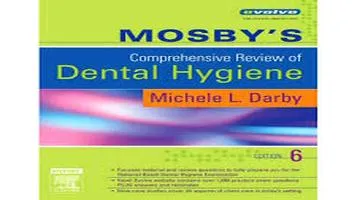Oral Hygiene Practices: A Comprehensive Review
Oral hygiene practices are essential for maintaining healthy teeth and gums, preventing dental diseases, and promoting overall health. Fundamental practices include brushing teeth at least twice a day with fluoride toothpaste to remove plaque and food particles. Flossing daily helps clean between teeth and under the gumline, areas a toothbrush can't reach. Using an antimicrobial mouthwash can further reduce bacteria and freshen breath. Regular dental check-ups and professional cleanings are crucial for early detection and management of potential issues. A balanced diet, limited in sugary snacks, supports oral health by reducing the risk of cavities. Additionally, avoiding tobacco products and moderating alcohol intake can prevent oral cancers and other diseases. Consistent oral hygiene routines are vital for long-term dental health and well-being.

Oral hygiene is an essential aspect of overall health and well-being, influencing not only the condition of our teeth and gums but also our systemic health. Practices surrounding oral hygiene are diverse, encompassing daily habits, professional interventions, and lifestyle choices that collectively aim to maintain and enhance oral health. This review delves into various oral hygiene practices, their effectiveness, and the importance of integrating these habits into daily routines.
Daily Oral Hygiene Practices
1. Brushing: The cornerstone of oral hygiene is regular brushing. Dentists recommend brushing at least twice a day using a fluoride toothpaste. The technique is as important as the frequency; a proper brushing method involves using a soft-bristled toothbrush, holding it at a 45-degree angle to the gums, and using gentle, circular motions. This helps remove plaque without damaging the enamel or gums. Electric toothbrushes, with their oscillating and vibrating bristles, can be particularly effective in enhancing plaque removal.
2. Flossing: While brushing cleans the surfaces of the teeth, flossing is crucial for removing food particles and plaque from between the teeth and under the gumline where a toothbrush cannot reach. Daily flossing can prevent cavities and periodontal diseases by disrupting the formation of biofilms. For those who find traditional flossing challenging, water flossers or interdental brushes can be effective alternatives.
3. Mouthwash: Using an antimicrobial mouthwash can complement brushing and flossing by reducing the bacterial load in the mouth. Mouthwashes containing chlorhexidine, essential oils, or cetylpyridinium chloride can help control plaque and gingivitis. However, mouthwash should not replace brushing and flossing but rather serve as an additional preventive measure.
4. Tongue Cleaning: The tongue can harbor bacteria that contribute to bad breath and plaque formation. Using a tongue scraper or brushing the tongue daily can reduce bacterial load and improve overall oral hygiene.
Professional Dental Care
1. Regular Dental Check-ups: Visiting a dentist regularly, typically every six months, is crucial for maintaining oral health. Professional cleanings remove tartar buildup that cannot be eliminated by regular brushing and flossing. Dentists can also detect early signs of dental issues such as cavities, gum disease, and oral cancer, providing timely intervention.
2. Dental Sealants and Fluoride Treatments: For additional protection, especially in children, dentists may apply dental sealants on the chewing surfaces of the back teeth to prevent decay. Fluoride treatments, either applied in the dental office or through fluoride varnishes, can strengthen enamel and make teeth more resistant to decay.
Lifestyle and Dietary Considerations
1. Diet: A balanced diet plays a significant role in oral health. Foods high in sugars and starches contribute to the formation of plaque acids that erode enamel and cause cavities. Limiting sugary snacks, sodas, and acidic foods can reduce the risk of tooth decay. Incorporating a diet rich in calcium, phosphorus, and vitamins C and D supports healthy teeth and gums.
2. Hydration: Drinking plenty of water, especially fluoridated water, helps wash away food particles and bacteria, and keeps the mouth hydrated. Saliva is a natural defense against tooth decay, and adequate hydration ensures its optimal production.
3. Avoiding Tobacco and Alcohol: Tobacco use in any form is detrimental to oral health, increasing the risk of gum disease, tooth loss, and oral cancer. Excessive alcohol consumption can also lead to oral health problems, including dry mouth, cavities, and oral cancers. Avoiding these substances or using them in moderation is crucial for maintaining oral hygiene.
Innovative Oral Hygiene Tools
1. Electric Toothbrushes: As mentioned earlier, electric toothbrushes have been shown to be more effective than manual brushes in reducing plaque and gingivitis. They are particularly beneficial for individuals with limited dexterity.
2. Water Flossers: Devices like water flossers use a stream of water to remove food particles and plaque between teeth and below the gumline. They are an excellent alternative for those who find traditional flossing difficult.
3. Smart Toothbrushes: The advent of smart toothbrushes, equipped with sensors and connected to mobile apps, allows users to track their brushing habits and receive real-time feedback, ensuring thorough and effective cleaning.
Conclusion
Oral hygiene practices are a fundamental component of overall health, requiring a multifaceted approach that includes daily habits, regular professional care, and mindful lifestyle choices. Brushing, flossing, and the use of mouthwash form the foundation of daily oral care, while regular dental visits are essential for maintaining long-term oral health. Dietary considerations and lifestyle choices further influence oral hygiene, underscoring the interconnectedness of oral and systemic health. Innovations in oral care tools continue to enhance the effectiveness of these practices, making it easier for individuals to maintain a healthy mouth. Integrating comprehensive oral hygiene practices into daily routines is essential for preventing dental problems and promoting overall well-being.






